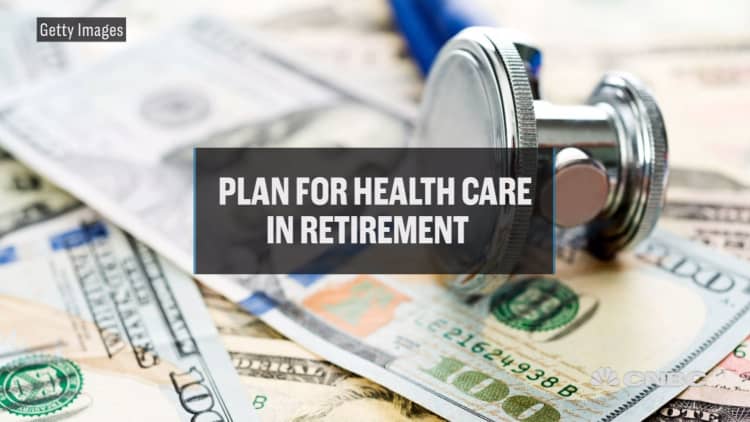If you're like many Americans, you're waiting for your tax refund to arrive before taking care of health-care expenses.
New research from the J.P. Morgan Chase Institute found that health-care spending spikes by 60 percent in the week after individuals receive their tax refunds. And those higher payouts last for about 75 days following the receipt of the refund, the think tank found.
Families who have less cash available were more likely to increase their health-care spending after their refund. Account holders with less than $536 in their checking accounts increased health spending by a whopping 220 percent post-refund. Those with more than $3,500 in their checking accounts increased their health outlay by 11 percent.
The payments were measured through immediate payment methods including debit cards or electronic payments. Credit card use for health expenses did not change, the research found.
"People are in effect waiting for this tax refund to come, then seeking care," said Diana Farrell, president and CEO of the J.P. Morgan Chase Institute.
The refunds prompted individuals to either visit dentists' or doctors' offices, or to pay outstanding hospital bills, according to the research.
"We know the dynamics of health-care problems is they don't age well," Farrell said. "If you're waiting to seek care, you're not getting care when you need it."
The research is evidence of the financial volatility Americans live with day to day, according to Farrell, with their income and spending going up and down all the time.
The data did not include individuals who hold health savings accounts or flexible spending accounts, which are tax advantaged ways to save for these costs in advance.
Individuals can take steps to prepare for these expenses in advance, according to Steve Auerbach, CEO of Alegeus, a consumer directed health-care technology company.
First, Auerbach recommends taking advantage of health savings accounts if they are offered by your employer. You must have a qualified high-deductible health plan in order to have a health savings account.
The advantages of HSAs is that they are triple-tax free: The money is invested pretax, and there are no taxes on the interest or when the money is taken out for eligible medical expenses. Because you are not required to take the money out and you can take it with you if you leave your employer, it is also considered a potential retirement savings vehicle.

Usually when picking benefits, individuals default to plans that have lower deductibles. But high deductible plans are often offset by a lower premium, Auerbach said. Those savings can then be placed in an HSA.
If you do not have access to an HSA, you may want to consider a flexible spending account to cover out-of-pocket expenses, Auerbach said. Like HSAs, flexible spending accounts are funded with pretax money. But there are limits to how long you have to use the funds.
Consumers who want to better plan for health costs may also want to check online tools to help estimate how much they should save, Auerbach said.
"Saving for your health care is just like saving for your retirement," Auerbach said. "It's just another expense you have to plan for."
J.P. Morgan Chase Institute's research was based on data from the firm's J.P. Morgan Chase retail branches in 23 states and included clients ages 18 to 64.
More from Personal Finance:
FSA or HSA: How to get the most from your health savings
If you're tired of Medicare Advantage, now is the time to ditch
10 moves to boost your wealth in 2018


